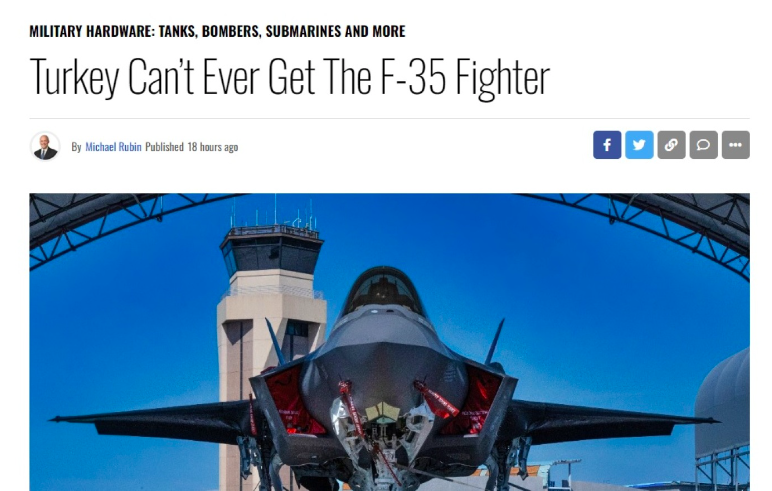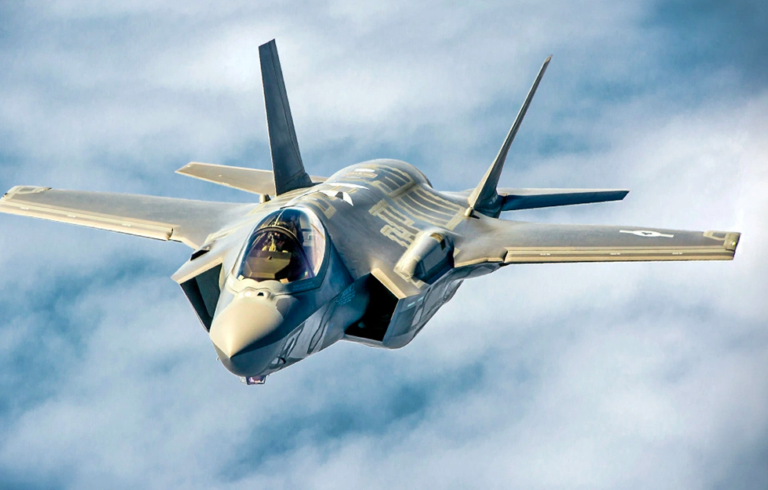The Turkish desire to rejoin the F-35 program was revealed yesterday by the newspaper Cumhuriyet, which also disclosed ‘s intention to “freeze” the use of the S-400s purchased from Russia to persuade Washington to supply it with the latest-generation fighter jets.
However, the realization of this desire appears impossible, as explained by an American expert in an article for the National Security Journal. The expert outlines four reasons why Erdogan’s government “can never acquire F-35s.”
According to Michael Rubin, a former U.S. Department of Defense official and expert on Iran, Türkiye, and the Middle East, the primary reason is Türkiye’s decision to procure the Russian S-400 missile system. Rubin analyzes the risks to NATO if a member country possesses both F-35s and S-400s—even if the S-400s are “frozen.”
Rubin states, “The issue was not just a commercial contract, but the integrity of NATO systems: Integrating the S-400 into Türkiye’s air defense would make NATO operations vulnerable. Even if Turkey were to protect the S-400s with a shield, the system could threaten the United States by allowing Turkish or hostile forces to practice tracking American stealth aircraft.”
Commenting on the agreement between Ankara and the U.S. for the acquisition of F-16s and the upgrade of existing F-16s in exchange for lifting Türkiye’s de facto veto on Sweden’s NATO accession, Rubin emphasizes that “the White House’s call to Congress leaders to push for the approval of the F-16 deal was embarrassing, given that Turkey failed to fulfill its commitment to return the F-35 designs to the United States.”
He continues, noting that “the apparent move to revive the F-35 deal, as reported by the Turkish newspaper Cumhuriyet, is peculiar for three additional reasons.
First, Türkiye does not hide its desire to build its own domestic arms industry and does not hesitate to replicate the technology provided by the United States. Erdogan’s son-in-law is the country’s leading arms magnate. Türkiye’s unofficial lobby, which operates within the State Department and permeates Washington’s think tanks, may downplay Türkiye’s behavior, but the reality is reality.

Second, although Türkiye agreed to use its F-16s solely for NATO purposes and to stop overflights over Greece, once the F-16 sale was finalized, Erdogan increased his aggressiveness. Today, Türkiye bombing non-military infrastructure in northeastern Syria, pursuing an ethnic cleansing campaign against the Kurds. Bombings in Iraq by Turkish F-16s have caused forest fires. On August 23, a Turkish drone killed two journalists in Iraqi Kurdistan, just outside the city of Sulaymani. More recently, Turkish vessels intervened with an Italian ship laying cable for a European Union-funded project connecting Cyprus and Crete’s energy networks. Although Türkiye did not deploy its F-16s in these operations, they enhanced Türkiye’s deterrence and led Erdogan to believe he could act with impunity.
Finally, Türkiye and terrorism. Its support for Hamas has increased. Türkiye’s ambassador to Iran has stated that the country needs to kneel both the U.S. and Israel. There is simply no difference today between providing Türkiye with advanced weapons and offering the same technologies to Iran. In both cases, the regimes would use the weapons against U.S. interests.”
Rubin concludes, “The stakes could not be higher. Biden, Blinken, and National Security Advisor Jake Sullivan promised Congress leaders that the sale of F-16s to Türkiye enhances U.S. and NATO security. The opposite has proven true. Instead of recognizing their mistake, the country may now be on the verge of acquiring even more advanced weaponry. Congress must call the White House and the State Department and make it clear: There can be no F-35s for Türkiye regardless of how much money the Turks and their allies from Azerbaijan spend on Washington’s public relations firms and lobbying, universities, and think tanks.”
Ask me anything
Explore related questions





